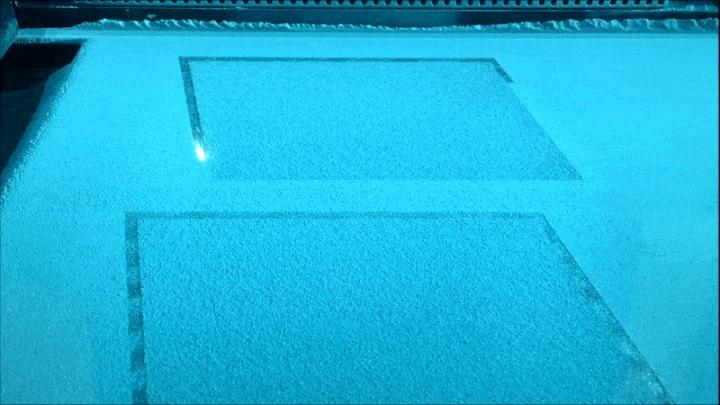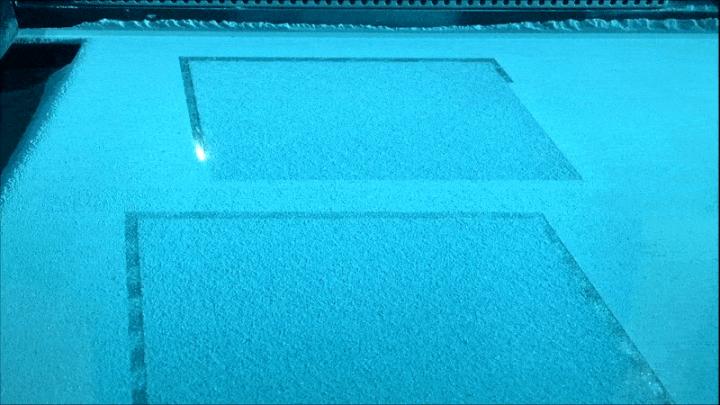
Credit: Swanson School of Engineering/ANSYS AMRL
PITTSBURGH (November 1, 2018) … Additive manufacturing (AM), or 3D printing, presents a game-changing opportunity for the space industry to produce complex components with greater efficiency at a lower cost. However, the trial-and-error method currently used to create such parts with limited materials is not suited for components that would need to survive the harsh environment of space.
Thanks to a $750,000 award from NASA, researchers from QuesTek Innovations and the University of Pittsburgh Swanson School of Engineering will utilize new computer modeling and optimization techniques, combined with a nickel-iron super-alloy, to enable faster adoption of additive manufacturing in various NASA missions.
The principal investigator of the project, "Integrated Computational Material Engineering Technologies for Additive Manufacturing," is Jiadong Gong, PhD, technical fellow at QuesTek in Evanston, Ill. Collaborators from the Swanson School's Department of Mechanical Engineering and Materials Science are Assistant Professor Wei Xiong, PhD and Associate Professor Albert To, PhD.
The project is one of 20 research and technology proposals funded through Phase II of NASA's competitive Small Business Technology Transfer (STTR) program, which supports NASA's future missions into deep space and benefits the U.S. economy. Selected proposals will support the development of technologies in the areas of aeronautics, science, human exploration and operations, and space technology.
"For as promising as AM is to modern manufacturing, its acceptance by major commercial or government industries like NASA comes down to a lack of confidence in the quality of the part," Dr. Gong said. "The majority of systems are based largely on hand-tuned parameters determined by trial-and-error for a limited set of materials, which is ineffective, costly and can contribute to mission failure."
To offset these problems, QuesTek and Pitt will work together to develop an Integrated Computational Materials Engineering (ICME) framework for Inconel 718, a commonly used super-alloy preferred for high-temperature environments in aerospace applications. Processing of Inconel will be further designed, and thus better suited for additive manufacturing versus traditional industrial manufacturing techniques, with reduced costs and greater structural integrity than traditional metals.
Drs. Xiong and To will contribute Pitt's expertise in integrated computational mechanical and materials design, supported by AM resources in the Swanson School's ANSYS Additive Manufacturing Research Laboratory and Nanoscale Fabrication & Characterization Facility.
To advance NASA's goal to make these new technologies available commercially, the Pitt/QuesTek team will develop a software tool that can be used by OEMs (Original Equipment Manufacturers) to reduce costs and improve AM techniques for other industries such as automotive, biomedical and energy.
"Research partnerships between industry and universities such as Pitt can truly help to advance new technologies, thanks to programs such as those funded by NASA," Dr. Xiong said. "At Pitt, we have focused on process-structure-property optimization and improved computer modeling with advanced alloys to mitigate these issues and improve quality control. Combined with QuesTek's expertise in Materials by Design®, we can accelerate the insertion of materials not only for NASA but for commercial industries as well."
###
Media Contact
Paul Kovach
[email protected]
412-624-0265
http://www.pitt.edu
Original Source
https://www.engineering.pitt.edu/News/2018/QuesTek-Xiong-To-NASA-Award/





